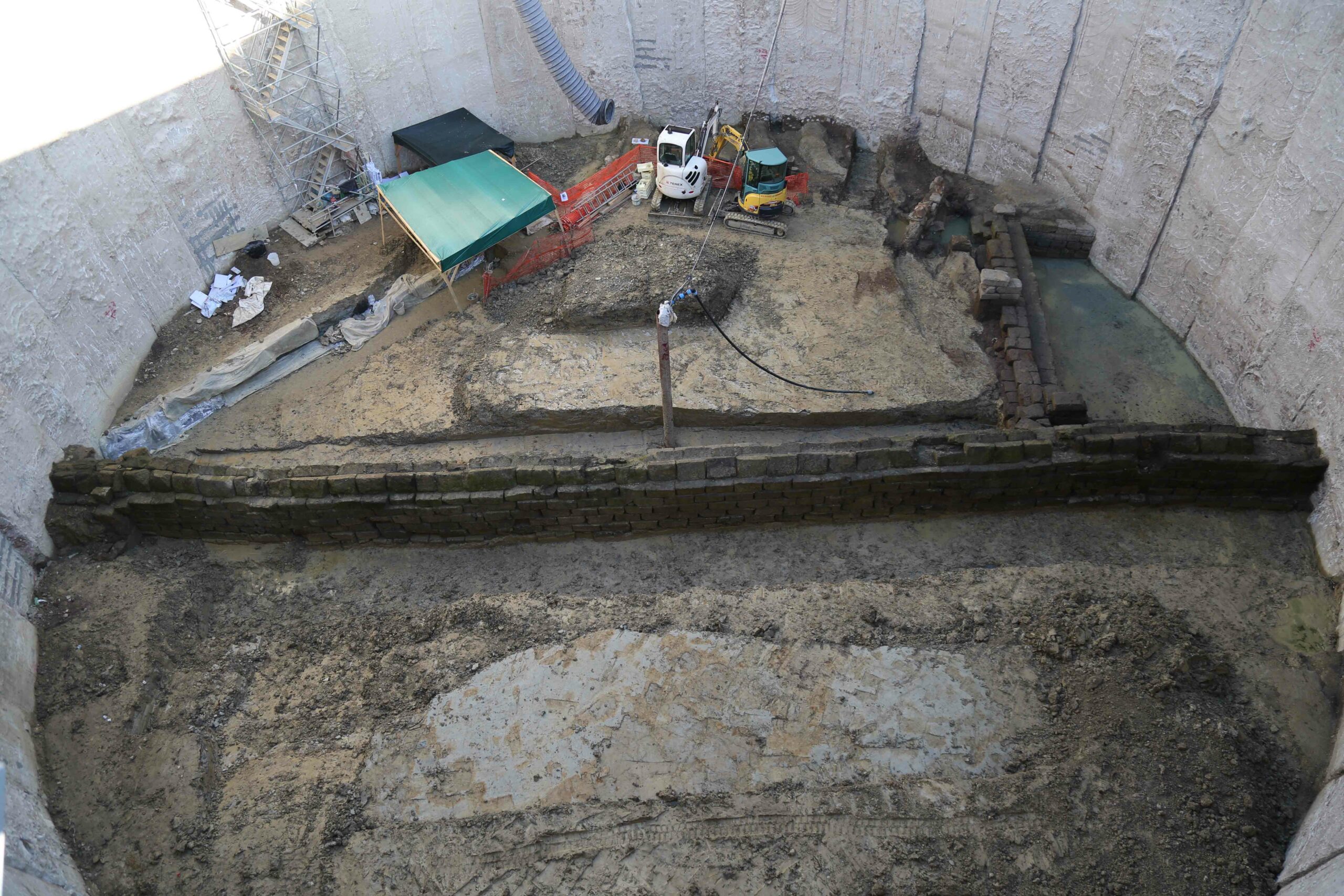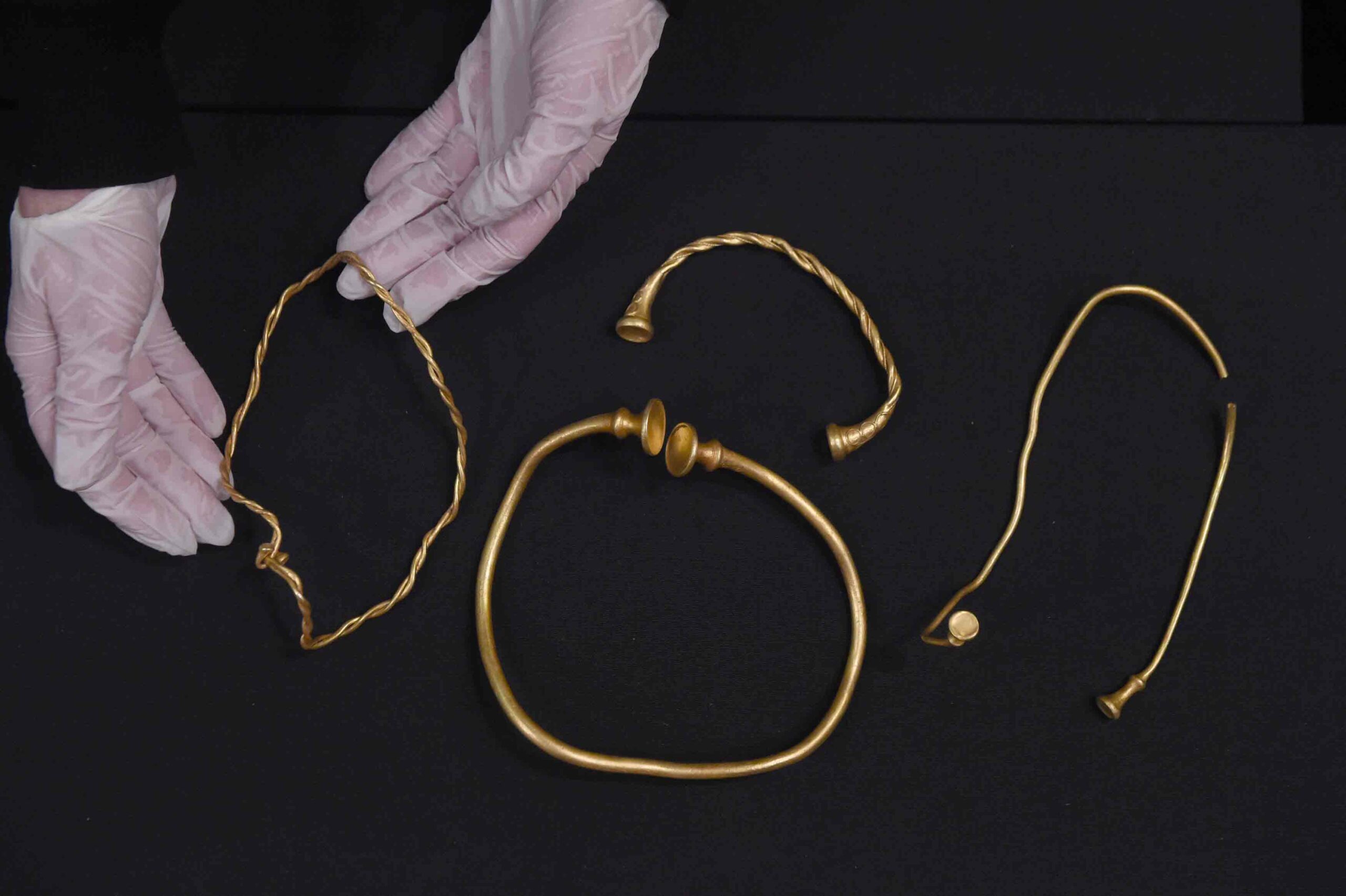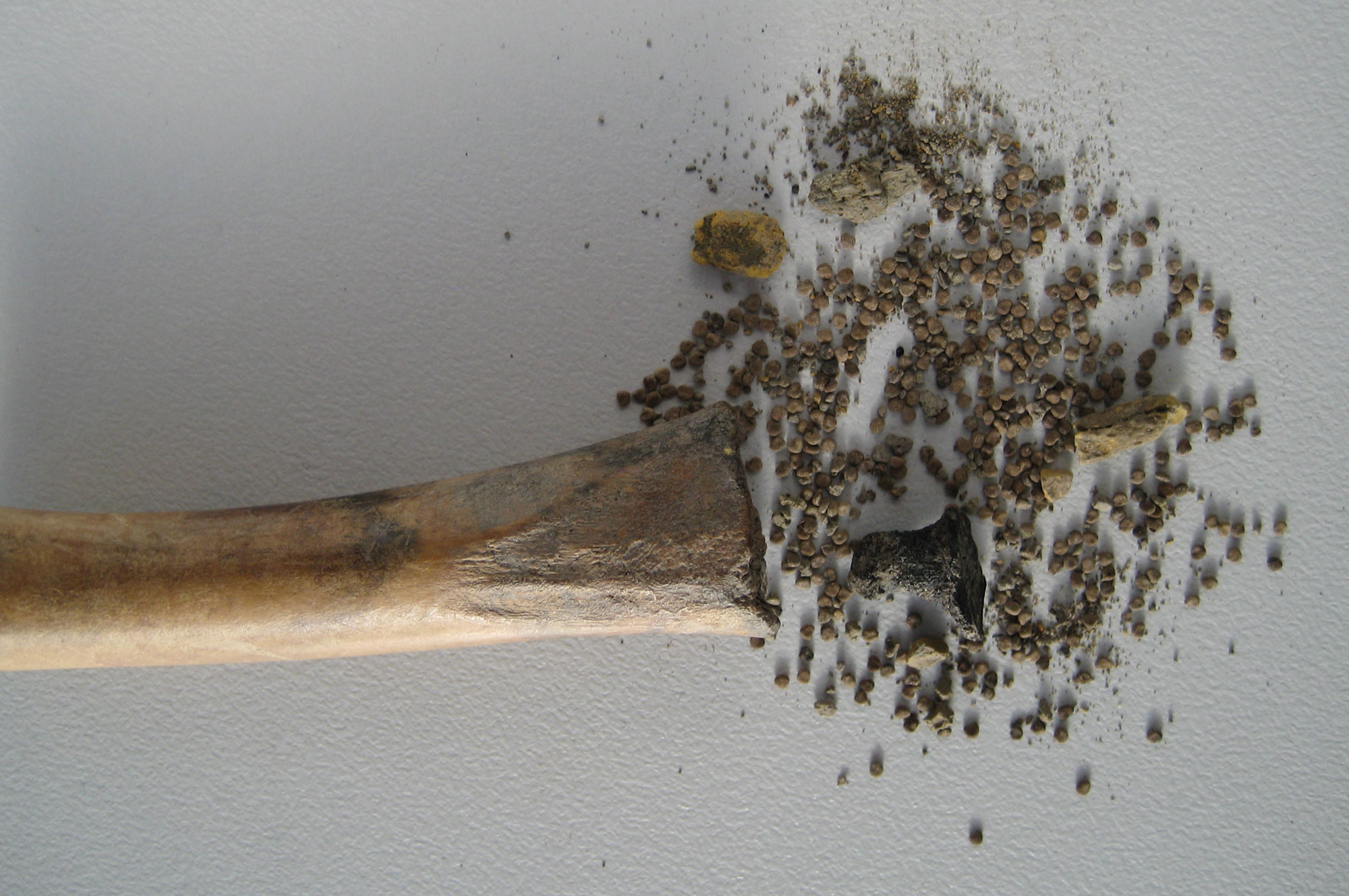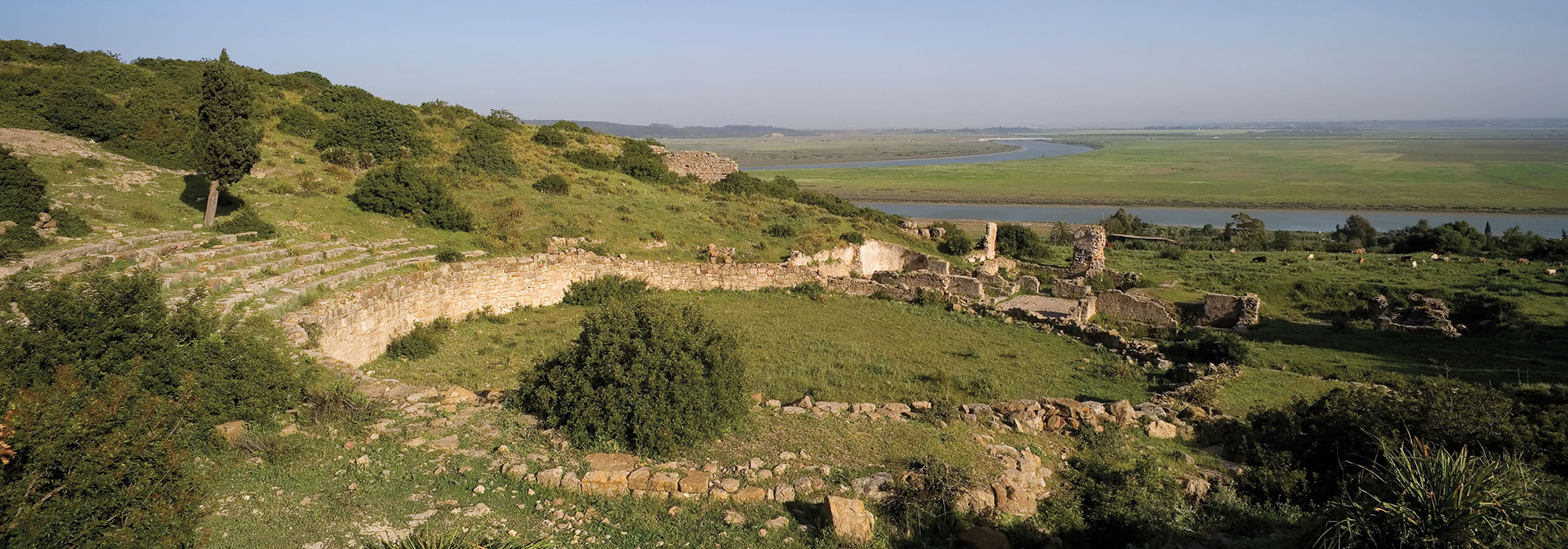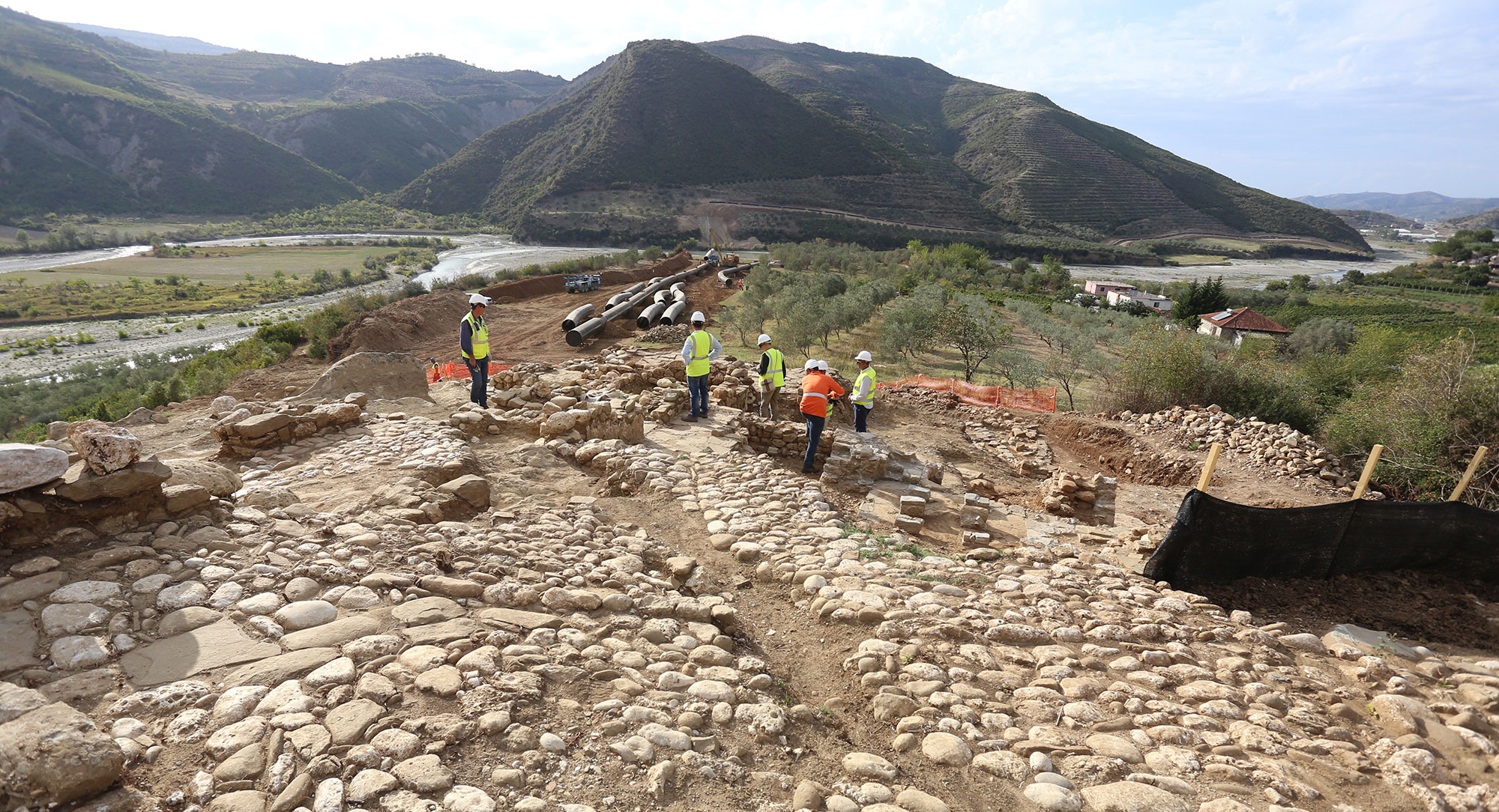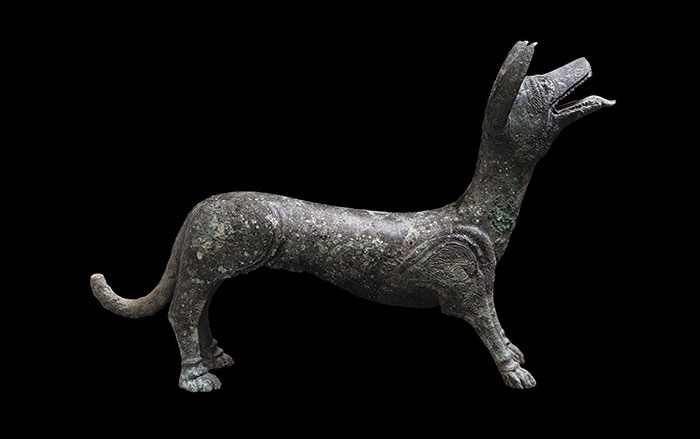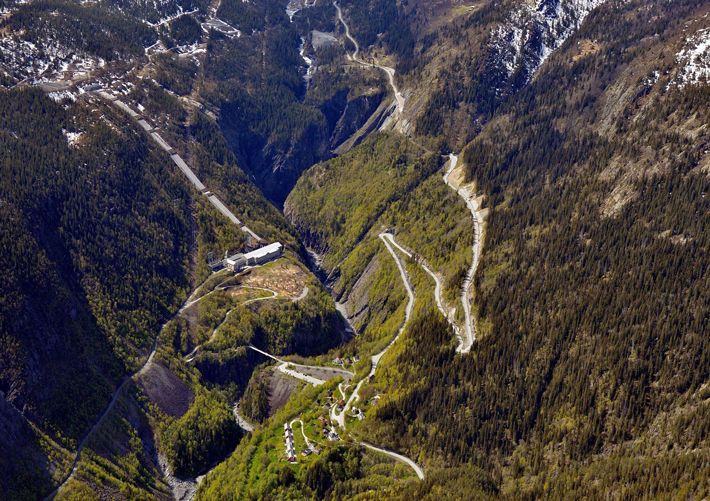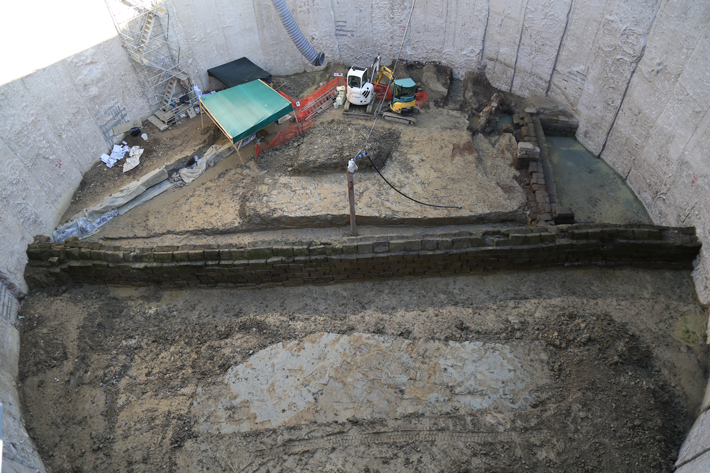
Construction workers on Rome’s new “C” metro line uncovered what is believed to have been part of the Aqua Appia, Rome’s oldest-known aqueduct, which dates back to 312 B.C. The remains were found near the Colosseum, at around 55 to 60 feet below Piazza Celimontana, a depth usually unreachable by archaeological excavation, says Simona Morretta of the Archaeological Superintendency of Rome. The section of aqueduct measures 6.5 feet tall and is made up of large gray, granular tufa blocks arranged in five rows. “The total absence of any traces of limestone inside the duct suggests that its use over time has been limited,” says Morretta, “or that the structure was abandoned just after a maintenance intervention.” It stretches for more than 100 feet and continues beyond the investigation area bounded by concrete bulkheads.


